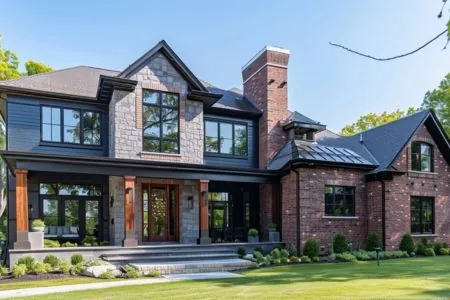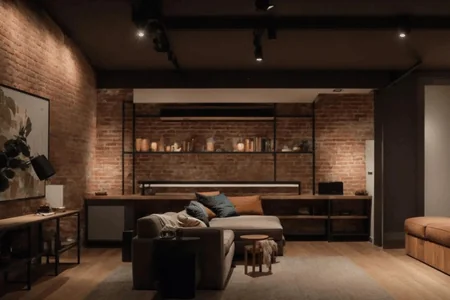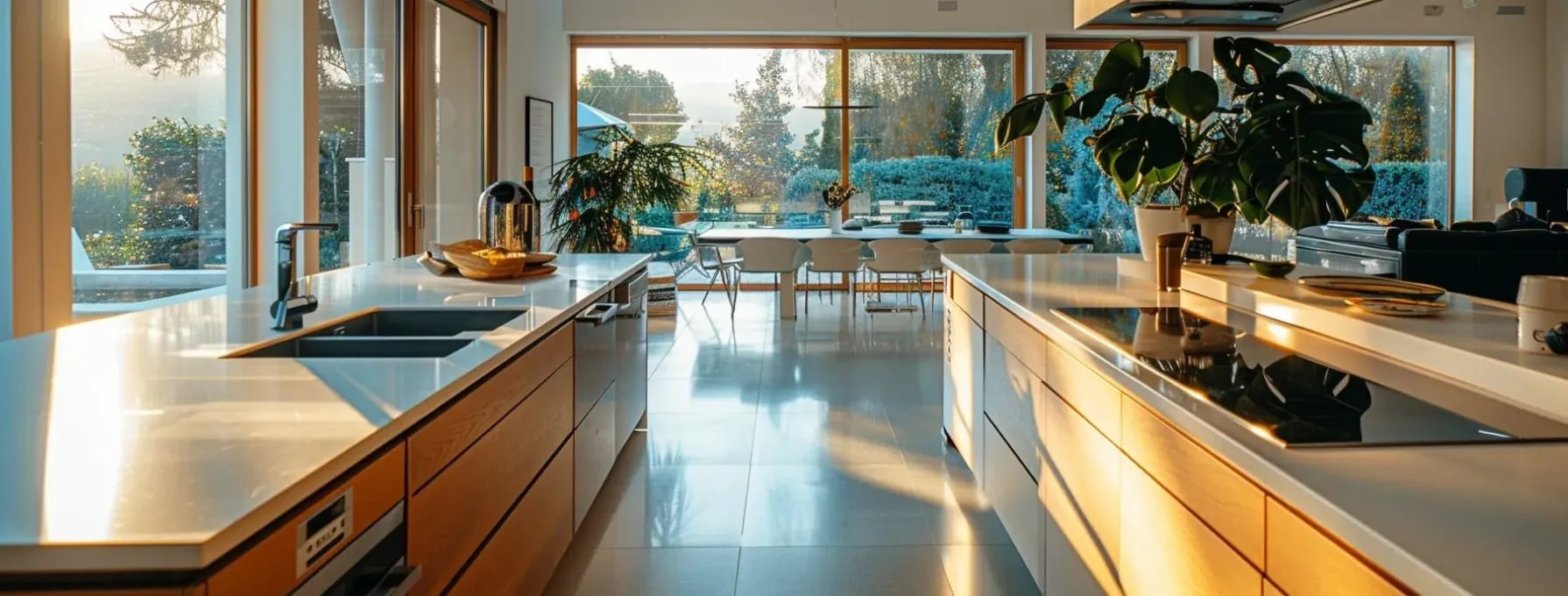Building a 24×24 garage requires careful budgeting, as costs can vary widely depending on materials, labor, and design choices. On average, expenses range from $10,000 to $20,000, but factors like foundation type, roofing materials, and additional features can increase costs. Understanding the breakdown of expenses—permits, contractor fees, and optional upgrades—helps you plan more effectively. However, there are also cost-saving strategies to reduce the costs without sacrificing quality. Whether you are looking to DIY certain aspects, choose budget-friendly materials, or compare contractor quotes, thoughtful planning can make a significant difference. Are you ready to explore ways to optimize your budget and cut unnecessary costs? Let’s get started then!
Factors That Affect the Cost of Building a 24×24 Garage
When planning to build your 24×24 garage, several factors will influence the overall cost. You will need to evaluate materials, labor, permits, and any additional features you want to include. Understanding these elements can help you budget effectively and avoid surprises along the way.
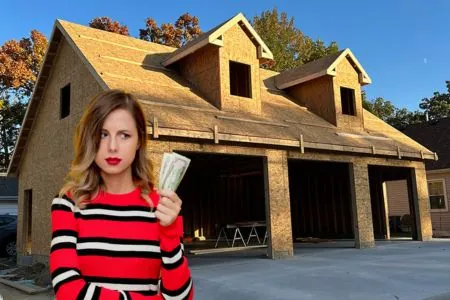
Materials and Construction Costs
Building a 24×24 garage involves material and construction costs that vary based on location, design, and material selection. A concrete slab foundation typically costs $1,500 to $4,000, depending on thickness. Wood framing is cost-effective, while steel framing offers durability at a higher price. Asphalt shingles are affordable, while metal roofing provides longevity but costs more. Standard windows and doors save money, whereas custom options increase expenses. Electrical work, plumbing, and insulation add to costs. Selecting the right materials ensures a balance between affordability and durability, making your garage a long-lasting and cost-efficient addition.
Labor and Contractor Fees
Answering the question “How much would it cost to build a 24×24 garage?’ is not as simple as it might seem. Labor and contractor fees significantly impact 24×24 garage construction costs. Hiring a general contractor simplifies project management but adds 10-20% to total expenses. Labor rates vary by location, making urban areas more expensive than rural ones. Skilled labor is needed for complex designs, increasing costs. Expedited timelines may result in additional charges. Opting for individual subcontractors for electrical, roofing, or plumbing can sometimes reduce expenses but requires extra coordination. Understanding these labor factors helps with budgeting and cost control, preventing unexpected expenses and ensuring a smooth garage-building process.
Permits and Legal Requirements
Permits and legal requirements affect garage construction costs and project timelines. Local zoning laws and building codes determine garage placement, height, and material restrictions. Depending on the region, a building permit typically costs between $200 and $1,500. Additional permits for electrical, plumbing, or HVAC work may be necessary, adding to the overall expenses. Inspections at different stages of construction can further impact costs. Some contractors manage the permitting process, though they may charge an extra fee. Factoring in these legal requirements ensures compliance, prevents delays, and helps avoid costly fines or forced modifications. It also helps protect your property and the workers in the event of an accident occurring during work.
Additional Features That Affect the Price
Custom features can increase the cost of a 24×24 garage. High-quality siding, roofing, and insulation add durability but raise expenses. Windows, roll-up doors, and specialty flooring like epoxy or heated concrete increase costs. Electrical upgrades, such as LED lighting, extra outlets, and security systems, further impact the budget. Custom architectural styles or detached garages with loft space also drive up expenses. Storage solutions like built-in shelving or overhead racks add convenience but come at a price. Evaluating these garage ideas ensures your budget aligns with both functionality and long-term value.
Estimated Cost Breakdown for a 24×24 Garage
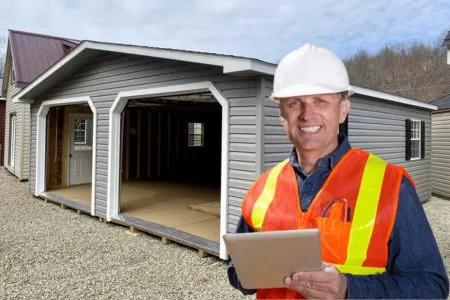
When planning your 24×24 garage, it is important to understand the cost breakdown involved. A common question is, “How much does it cost to build a 24×24 garage?” The answer depends on factors like materials, labor, and additional features. You need to evaluate the basic garage cost, the differences between custom, remodeling, or prefab options, and whether you want to tackle the project yourself or hire a contractor. Each choice will significantly impact your overall budget and timeline.
How much would it cost to build a 24×24 garage?
Building a 24×24 garage typically costs between $10,000 and $20,000, with expenses varying based on materials, labor, and location. A concrete foundation costs $1,500 to $4,000, while framing runs between $2,000 and $5,000. Roofing materials range from $1,500 to $3,000, and siding adds another $2,000 to $4,000. Depending on size and style, windows and doors cost $500 to $2,000. Labor accounts for 25-50% of the total cost, with regional rates impacting the final price. Additional expenses include permits, electrical work, and finishing materials. Careful planning and budgeting can help you manage these costs effectively, ensuring your garage meets your needs and financial constraints.
Custom vs. Prefab Garage Costs
Choosing between a custom-built or prefab garage significantly affects cost and project scope. A custom garage allows complete design flexibility but costs $30,000 to $50,000, depending on materials and features. A prefab garage, by contrast, is more budget-friendly, ranging from $10,000 to $25,000, as it comes with pre-cut materials that simplify installation and reduce labor costs. While custom garages offer tailored designs, prefab garages emphasize affordability and faster assembly. Deciding between the two depends on your budget, design preferences, and long-term needs. Weighing these factors carefully ensures you select the best option for your property and financial situation.
DIY vs. Hiring a Garage Contractor
Deciding between DIY construction and hiring a garage contractor depends on budget, skill level, and time availability. A DIY garage costs between $8,000 and $12,000 for materials, but mistakes can lead to additional expenses. Hiring a contractor adds $5,000 to $10,000 for labor but ensures compliance with building codes and a professional finish. Garage contractors streamline the process, reducing delays and costly errors. DIY projects demand knowledge of framing, roofing, electrical work, and permits, which can be overwhelming for beginners. If you have experience, DIY may be cost-effective; otherwise, hiring professional garage contractors ensures quality results and long-term durability.
How to Save Money on Building a Garage
Building a garage is a significant investment, but careful planning can help you cut costs without sacrificing quality. Start with a simple, functional design—avoiding complex rooflines, oversized doors, and high-end finishes keeps expenses manageable. Opting for cost-effective materials like asphalt shingles for roofing and wood framing can further reduce costs. Additionally, buying materials in bulk or using reclaimed materials from local suppliers can lead to big savings.

Taking on DIY tasks such as painting, flooring, or insulation helps lower labor costs. Always request multiple quotes to find the best deal if hiring a contractor. Scheduling construction during the off-season can also result in lower labor rates.
To maximize savings, focus on essential features like durability, insulation, and security while limiting unnecessary upgrades. If possible, get help from experienced friends or family for minor tasks. Most importantly, set a strict budget and stick to it to avoid overspending while still building a high-quality, functional garage.
Get a Quote for Your 24×24 Garage Project Today.
If you are wondering, “How much would it cost to build a 24×24 garage?” The best way to find out is to get a detailed quote from your contractor or remodeling company. Costs vary based on materials, labor, permits, and additional features, so comparing multiple estimates is essential. Reach out to at least three contractors and clearly outline your requirements, whether you need a basic structure or a fully customized garage.
Ask about hidden costs, warranties, and project timelines to avoid unexpected expenses. Understanding these details ensures a transparent and budget-friendly building process. Comparing quotes allows you to make an informed decision while securing the best value for your investment. Ready to start? Get a quote today from us and take the first step toward building your perfect 24×24 garage!
FAQs on 24×24 Garage Build Up Cost
How much does it cost to build a 24×24 garage DIY?
Constructing a 24×24 garage yourself can lead to significant savings, primarily on labor costs. Material expenses for a DIY project typically range from $8,000 to $12,000. However, costs can vary based on the quality of materials chosen and unforeseen challenges during construction. It’s essential to have a solid understanding of construction practices and local building codes to ensure safety and compliance. Additionally, some tasks, such as electrical or plumbing work, may still require professional assistance or permits.
How many cars fit in a 24×24 garage?
A 24×24 garage is generally designed to accommodate two standard-sized vehicles comfortably. This size provides sufficient space not only for parking but also for opening car doors and moving around the vehicles. However, if you plan to use the garage for additional storage or as a workspace, you might find the space limited. Some users suggest that increasing the dimensions slightly, such as to 26×28 feet, offers more flexibility for such purposes.
Is it cheaper to build or buy a garage?
The cost-effectiveness of building versus buying a garage depends on various factors, including customization, materials, and labor. Prefabricated (prefab) garages are often more affordable, with prices for a 24×24 prefab garage starting around $14,000. These structures are manufactured off-site and assembled on your property, reducing labor costs and construction time. In contrast, custom-built garages offer more design flexibility but come at a higher price, averaging around $25,000 for a 24×24 size. This higher cost accounts for personalized design, higher-quality materials, and increased labor expenses.
What is a standard 2-car garage size?
A standard 2-car garage typically measures between 20×20 feet and 24×24 feet, providing enough space to park two vehicles comfortably while allowing room for storage and movement. The most common size is 24×24 feet, as it offers ample space for larger vehicles, additional storage, and workspace. However, for compact cars or minimal storage needs, a 20×20-foot garage may suffice. If extra space for tools, equipment, or a workbench is required, homeowners may opt for larger dimensions like 24×30 feet or 26×26 feet. When planning a garage, it’s essential to consider vehicle size, door width (typically 8 to 9 feet per door), and any additional storage or workspace needs to ensure functionality and convenience.
How do people afford to build a garage?
People afford to build a garage through various financing options, depending on their budget and financial situation. Some homeowners save up and pay in cash to avoid interest and loans, while others opt for home equity loans or lines of credit (HELOCs), using their home’s equity to finance the construction. Another common method is personal loans, which provide quick funding but often come with higher interest rates. Additionally, some choose to finance through their contractor, as many builders offer payment plans or financing options. For those on a tight budget, credit cards can cover smaller expenses, though high interest makes this a less desirable option. To lower costs, homeowners can also consider DIY construction, choosing cost-effective materials, or building in phases rather than completing the entire project at once. Comparing contractor quotes, applying for grants or local incentives, and building during the off-season can also help make garage construction more affordable.

